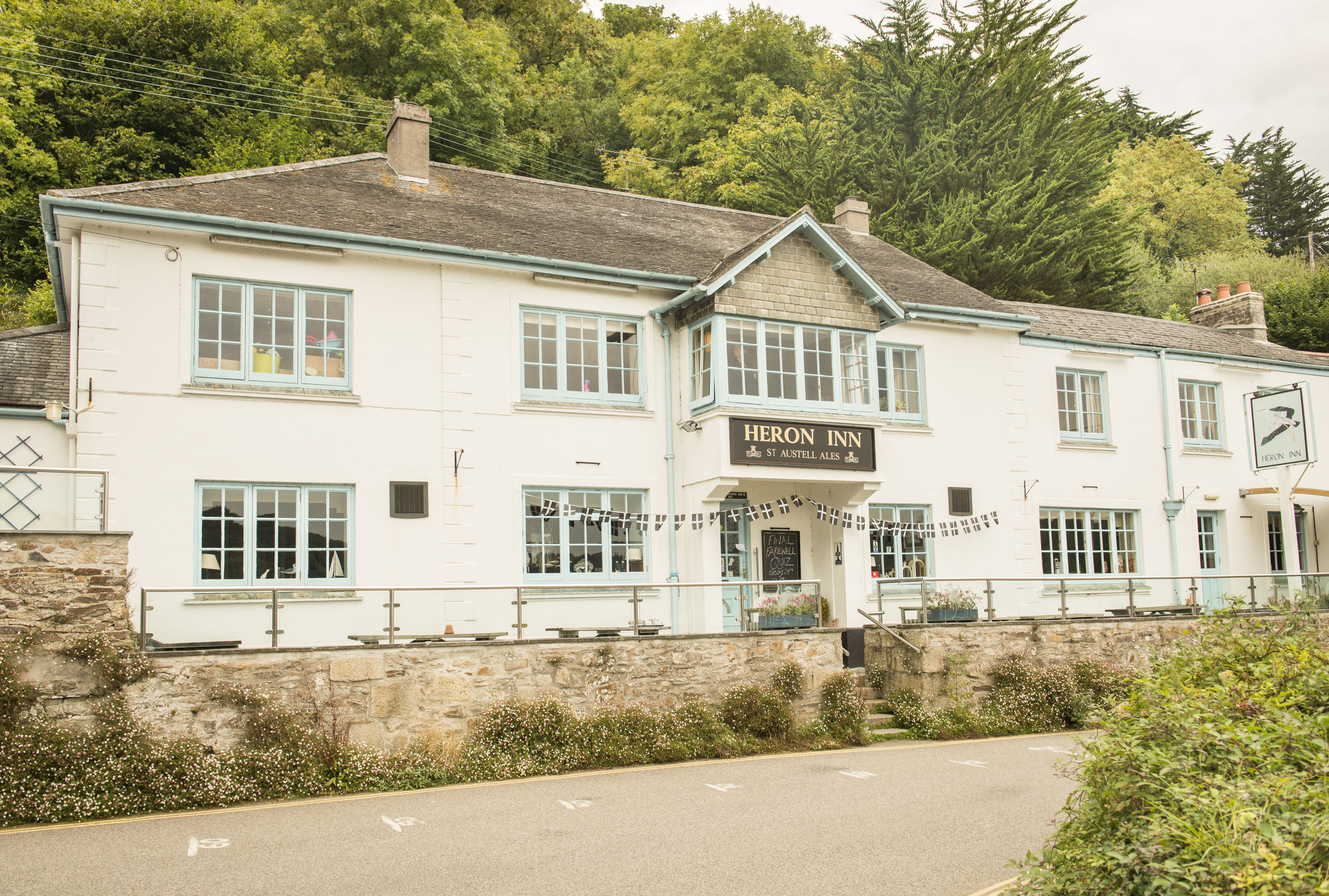Step into our history: Heron Inn, Malpas
T his August, we’re featuring the Heron Inn in celebration of our current tenants’ achievements. Step back in time to reveal how far this beautiful riverside pub has come and add it to your bucket list this summer.

Ever thought of running your own pub?
In 2022, Nick and Amanda Hemming from the Heron Inn, were awarded the prestigious Licensee of the Year award by the British Institute of Innkeeping. If you’ve paid a visit to this wonderful inn, you’ll have no doubt witnessed first-hand its exemplary hospitality and delicious food and drink offering, so this national award may come as no surprise, however, the history of the building may be more of a revelation.
Have a business-orientated mind and looking for a new challenge? Be inspired by some of our incredible tenants and take the leap today – check out our current tenancies and be your own boss, with our unrivalled support every step of the way.
The beginning
Situated on the confluence of the Truro and Tresillian rivers, Malpas has long been associated with shipping and trade. During the 19th century, ships were built along the water’s edge, and cargo destined for the port of Truro was unloaded from ship to barge. Unsurprisingly, the 19th century census returns show that most locals in the small hamlet supported the international sea trade, many of which included the inns that provided victuals for travellers to the area.
It's not entirely clear when the present building, now known as the Heron Inn, first began trading. In 1841, however, it was the only inn in the hamlet, run by Thomas Hugo and his wife, Jane. Fast forward 20 years and a second inn was established thanks to the roaring sea trade in Malpas.
It wasn't always smooth sailing
Being centred around a busy working port, the inn has had its fair share of problems. In 1886, during the Malpas Regatta, two men were charged with being drunk and disorderly when refusing to leave the inn when asked. And in 1893, the new licensee, John Bennett, was charged for permitting drunkenness on his premises. Hitting their peak in 1895, chaos ensued when Charles Oliver was charged with unlawfully beating John Bennett, although Oliver claimed there had been ‘great provocation’.
Today, you won’t find such ruckus on site, instead, enjoy the peaceful tranquillity of the area over a refreshing pint or two.

From inn to hotel
The name change from ‘inn’ to ‘hotel’ first appears in the early 1890s, when the business was clearly gaining traction with tourists, made possible by the arrival of the railway in Truro. During this time, the hotel was also used for community events such as auctions, and in later years was the venue for several inquests.
Walter Hicks & Co purchased the property in 1930 for £1,099, after a turbulent spell of short-lived licensees. Installing Edwin and Vera Thomas as the new licensees, the precarious nature of the hotel’s location proved why so many before had failed to weather a lengthy tenancy on the property, with Edwin writing to the brewery: “I very much regret to say that last night’s gale played havoc with the building. One end of the house is stripped to the rafters with water running into the bedrooms.”
In 1936, notice was served on the tenant of the adjoining cottage – both the brewery and current tenants aspired to improve the hotel business and in 1937, the architects conducted works which the landlord believed, “With a more attractive house, I could double my winter trade, in these days with cars”. Yet with works slowed by the neighbour refusing to leave the cottage, the Thomas’ threatened to quit the business if the upgrades were not carried out before the summer season. The brewery called his bluff and accepted his notice to which Thomas curtly responded, “I’ve weathered the winter, now I’m going to benefit [from] the summer,” adding that he hoped any new tenant would “look after the local fellows… remember there are no ships here now, and not likely to be.”
Once both disputes were settled and tenders received in June 1937, works started to extend the building, upgrade the bedrooms and bathrooms, and install electric light, a new water main, and car park. Sanderson’s supplied the wallpaper and Bowman Brothers of Camden Town the furniture.
Becoming the Heron Inn
Thomas retained the lease on the hotel, but further problems arose in 1940. When the hotel was being used to house military personnel, the brewery was made aware of the landlords hostility, ‘‘I have received a letter from Major Hamilton this morning, complaining of the attitude you and Mrs Thomas have towards the military officers in your hotel, and he says that if it continues he will billet some of the military at your hotel at army rates.” Reaching boiling point, in 1949, Thomas was declared bankrupt.
Despite this setback, the Thomas family remained and, in 1960, informed the brewery that the name, the Park Hotel, was “Rather dull and uninspiring.” The brewery agreed and asked him to poll the locals, who shortlisted the names: The Watermans Arms, the Heron Inn, and The Three Rivers. On June 21st, 1961, Mrs Thomas was congratulated by the brewery for 30 years’ service, when it was suggested the couple might retire, however, Mr Thomas died unexpectedly the following week. The name changed officially on the September 4th, 1961, and a week later, Mrs Thomas gave notice to quit.
The building has significantly changed from its time as the Park Hotel; the oriel window and entrance have been rebuilt, the building has been further extended, and the façade re-fenestrated with new windows. While it’s evocative past as a busy port remains a distant memory, the setting of the inn and its commanding views across the river have changed little over the past century.